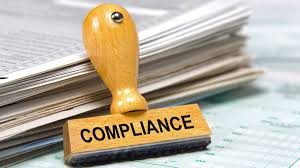Is your SMSF a complying fund?
The most common type of income generated from a Self-Managed Super Fund (SMSF) is rent from a commercial property.
Legislation for SMSFs investing in commercial property requires strict adherence to the sole purpose test, acquisition of “business real property,”and “arm’s-length transactions”.
Major factors include the exclusion of using the property for personal or related-party benefit, the need for an arm’s-length lease to a fund member’s business at market rates, and ensuring the property is “business real property”. Failure to comply can result in severe penalties, including the imposition of the 45% Non-Arm’s Length Income (NALI) tax rate and potential disqualification as a trustee.
- Sole Purpose Test: The SMSF must comply with the sole purpose test, meaning the fund is maintained solely for providing retirement benefits.
- Business Real Property: Related-party transactions involving property are only permissible if the property qualifies as business real property (BRP) under superannuation law. BRP generally means land and buildings used wholly and exclusively in a business. Residential property usually does not qualify.
- Arm’s-Length Transactions: If the property is leased to a related party (e.g., a member’s business), it must be under an arm’s-length arrangement. Rent must reflect market rates, and lease terms must be commercially reasonable (written agreement, proper payment schedules, enforcement of arrears, etc.).
- No Related Party Use: The property cannot be used for personal benefit (e.g., holiday house, residential home, or related-party residence).
Consequences of Non-Compliance
- Non-Arm’s Length Income (NALI) Tax: If lease agreements are not at market rate or are otherwise non-commercial, rental income may be taxed at the highest marginal rate (currently 45%) instead of the SMSF rate of 15%.
- Fines and Disqualification: The ATO can impose personal fines on trustees and disqualify them from acting as SMSF trustees or directors.
- Forced Sale: The SMSF may be directed by the regulator to sell the property to rectify the breach.
- SMSF Deemed Non-Complying: In serious cases, the entire SMSF can lose its complying status.
How To Ensure Your SMSF Stays Compliant
- Market-Rate Lease: If leasing to a member’s business, always have a formal lease agreement that reflects market rates and terms.
- In-House Asset Rules: Be aware of the 5% in-house asset limit, it restricts the market value of investments to related parties to no more than 5% of the total funds’ assets. If exceeding this, a written plan to reduce the holdings must be prepared and implemented.
- Documentation: Keep thorough documentation, including lease agreements and evidence of market-value transactions.
Author
Natasa Briffa

